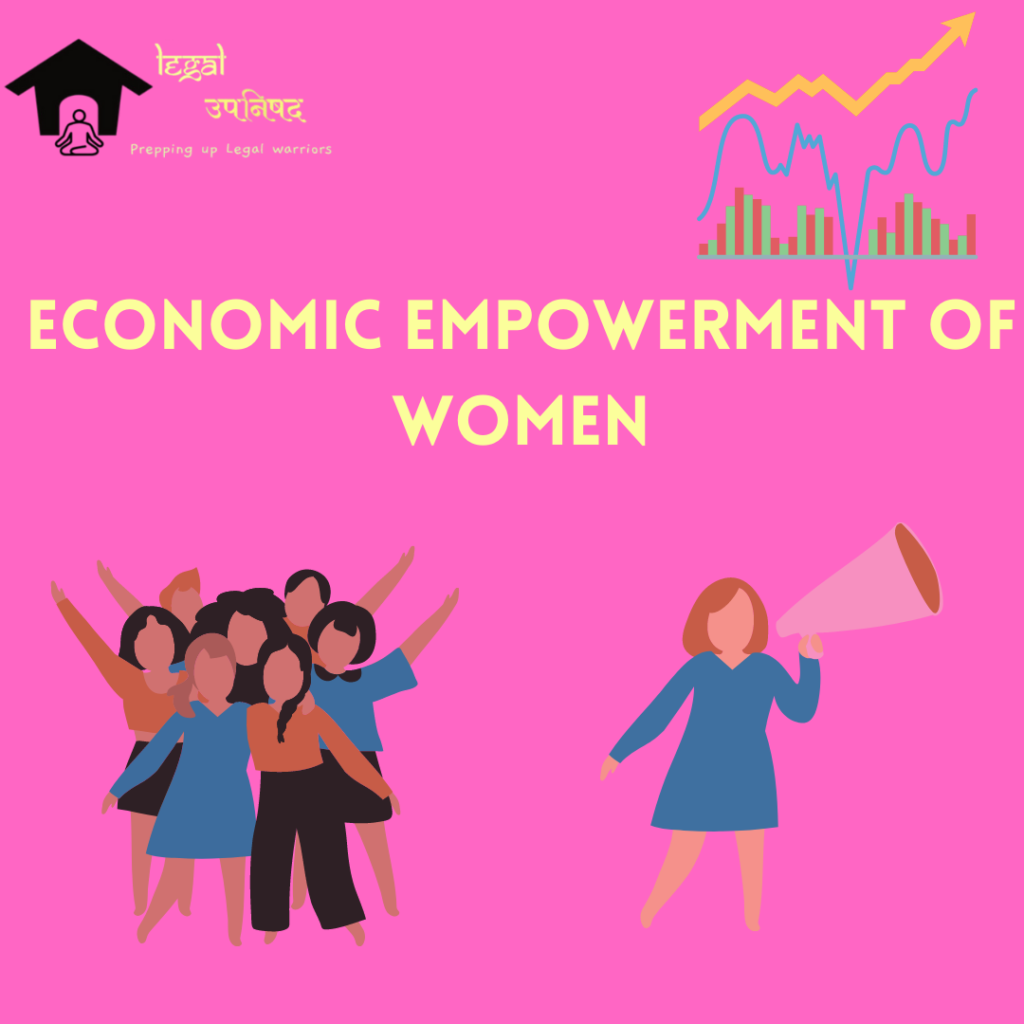This article on ‘Economic Empowerment of Women: Role of Law’ is written by an intern at Legal Upanishad.
Introduction
Economic development of women is important because it leads to elimination of poverty, gender equality and the overall development of the society. The law also plays a great role in economic empowerment of women because through different laws the equal opportunities can be provided for women as men and can also help in bringing women in to the main stream of the society. This article discusses as to what is actually economic empowerment of women and the role of law on the economic empowerment of women.
What is Economic Empowerment of Women?
Economic empowerment of women can be said to be as the right of women to have access to economic resources and also to participate in the economic activities. It is the extent to which women can contribute to the development. Economic empowerment helps women to have access to the economic benefits and opportunities such as job opportunities, financial services, different assests such as property and also to have the control over these resources and to make decisions over their use.
Economic empowerment of women brings about a positive change in their life and also the community. Empowerment cannot be achieved as a particular type rather there should be a holistic approach to empower women in all aspect. Once women are economically empowered many social problems that is present in the society such as the suppression of women, low status of women in the domestic sphere, imposition of customs and norms on the women, the dowry system in the society and domestic violence can be resolved.
Economic Empowerment of Women and the Role of Law
Law is one the main foundation for women’s economic empowerment but women will only be benefitted by these laws when they are aware of these laws and are aware of how they can use these laws in their favour. In our country the Constitution in its preamble, fundamental rights, fundamental duties and directives principle have supported the gender equality. Government with the help of different five year plans have taken various steps for empowering women.
Government also appointed different committees for discussing the issues related to women empowerment some of which are National Commission for Women Act of 1990, National Policy for the Empowerment of Women Act of 2001, Report of the Working group on Empowerment of Women of 2006, Report of the High Level Committee on the Status of Women in India of 2015.


The Act of 1990 led to the establishment of National Commission of Women for safeguarding the rights of women. Women’s Component Plan was adopted which directed the ministries for setting aside 30 percentage of funds for women development and also gender responsive budgeting was adopted in the year 2005. During 2005-2014 many schemes were launched keeping in mind the gender perspective, some of these are National Rural Livelihood Mission, National Rural Employment Guarantee Act, etc.
Government’s recent initiates that make women an active participant in the economic development indicates the governments initiative towards the development of women. Women Entrepreneurship Platform was set upped by NITI Aayog for supporting women with entrepreneurial talents across the country. Many other schemes such as Beti Bachao Beti Padhao Yogana, Ujjwala Scheme, etc aims to improve the livelihood of women and to support them for their development.
Measures for Economic Empowerment of Women
- Women should have full participation in the economy: Women should be abled to take full decision as to the using of funds.
- Policies should be enforced for the social protection of women.
- Unpaid Labour should be considered as work: unpaid labour which includes household duties are carried out by women which is considered as only as their duty, it should be considered as the work done by them.
- Women’s organization and businesses should be given more support.
- Women should be provided with a decent working environment and should be given equal access to education and training as men. Work place should be safe for women to work and develop themselves.
- Access to property and assets should be given to women: In our country this issue has been addressed through different schemes and policies which empower the women equal ownership opportunity with that of men. Hindu Succession Amendment Act of 2005, Indian Stamp Act of 1899 are examples of the same.
Conclusion
Empowerment is not merely the policies or provisions but what ultimately the women have access to or are able to enjoy. Economic empowerment of women will lead a women to empower in all the spheres, so the law and the society as a whole should take measures to improve the economic empowerment of the women. A holistic approach should be taken by all concerned for achieving the same.
